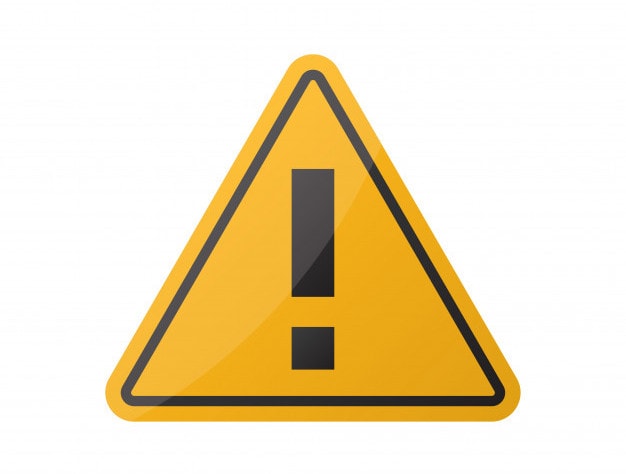
Why Crisis Communication Matters: Understanding Types, Differences and Steps

Discover the importance of Crisis Communication and learn effective strategies for managing a crisis in your organization From developing a plan to finding the right spokespersons, this article offers valuable insights and tips for successful crisis management
Does your business have a plan to deal with unexpected events that can harm your reputation or operations? And, are you prepared to handle negative publicity and media scrutiny in a crisis?
Having a crisis communication plan is crucial for any business, regardless of its size or industry. It helps you prepare for unforeseen circumstances such as natural disasters, cyber-attacks, product recalls, or legal issues that can damage your brand image and affect your bottom line.
By having a crisis communication plan in place, you can minimize the impact of a crisis and respond to it promptly and effectively. It enables you to communicate with your stakeholders, employees, customers, and the media in a timely and consistent manner, and regain their trust and confidence.
So, if you haven't already done so, it's time to develop a crisis communication plan for your business. It's better to be prepared than sorry!
1) Do you not have a crisis communication plan because you think that your business is too small to work upon such strategies?
OR
Do you think that crises only happen to other people? It's important to answer this question honestly before we can continue.
Having a crisis communication plan is crucial for businesses of all sizes, regardless of whether you answered 'Yes' to the first question or not. It allows you to efficiently manage any crises that may arise and ensures that your business is prepared for any unexpected events.
financial, reputational, or operational. Therefore, it is crucial to have a plan in place to minimize the negative impact of a crisis on your business.
Emotional
Financial and Economic
Personal
Organizational
In this article, we will delve into the realm of crisis communication and provide you with essential knowledge on key concepts and steps to create a solid crisis communication plan for your business. So, let's begin uncovering the secrets right away-
Introduction to Crisis Communication
While talking about crises, Edward A. Murphy, Jr., a U.S. Air Force engineer once said –
Crises are inevitable, as stated by the well-known quote, "Anything that can go wrong will — at the worst possible moment." This sentiment is commonly referred to as Murphy's First Law of Catastrophes and speaks to the certainty of unexpected challenges occurring in various aspects of life, from individuals to organizations and even governments.
Being prepared for potential crises is crucial for any organization as it can minimize the negative repercussions on various aspects such as reputation, employee morale, and overall well-being of the company.
To minimize losses, companies must prioritize production and anticipate potential crises. Effective communication is crucial in any business, both during and after a crisis. In today's rapidly changing landscape, companies are dedicating more resources and funds towards crisis management planning and strategies to ensure preparedness for future challenges.
Let us now have a look upon its definition.
What is Crisis Communication?
During a crisis situation, effective communication is crucial. Crisis communication refers to the use of systems, protocols, and advanced technologies to manage and respond to a crisis.
A company must have a crisis communication and incident response plan in place to effectively manage unexpected situations and ensure business continuity. This plan should include strategies and tips that are relevant to all firms, as well as real-life examples from companies currently operating in the market. Simply put, a crisis communication plan is a comprehensive set of guidelines designed to address potential business emergencies and uncertainties.
Why do we Require Crisis Communication?
To ensure minimal damage to the company's reputation during a crisis, a multi-step plan must be put in place. This plan should outline how to effectively communicate with employees and the media, as well as provide clear guidelines on how to handle the situation. By following these steps, the company can minimize any potential loss to its goodwill.
Every company, every day, faces a lot of threats, and due to the dynamic business environment, Crisis Communication becomes essential for every company’s success.
Effective crisis communication enables companies to manage external issues, such as media or public scrutiny, with confidence and minimal impact on productivity. This is crucial not just for the business itself, but for employees and shareholders alike. Each company will have their own approach to crisis communication that is tailored to their specific needs and circumstances.
Investors, customers, employees, media personnel, and other stakeholders. Keeping them informed about the organization's crisis management system is crucial in maintaining their trust and confidence. Mobile phones have proven to be the most effective mode of communication during a crisis as it provides easy access to information.
Media, journalists
Members of various industries
Stakeholders, directors, and investors
Public relations team and essential employees
Departmental leaders and IT team
Police, government officials, and security personnel
Key Tips for Effective Crisis Communication in an Organization
Every company must anticipate that crisis situations can occur at any time, affecting employees and groups in expected and unexpected ways. This is why it is essential to establish a crisis communication plan to effectively manage any potential future adverse events. To improve crisis communication, businesses should follow these key tips to ensure preparedness and effectiveness.
1. Do not take the time to respond
Promptly addressing public and media inquiries is crucial to maintaining a positive reputation for your company. Delayed responses can cause customers to lose interest, especially in a world where technology has conditioned us to expect quick answers to our questions.
Do not ignore the customers, as customers’ satisfaction play a significant role in the company’s success.
2. Value your supporters
Appreciate those who support your company, brand, and product, as they are instrumental in helping the company weather any crisis. Make it a priority to cultivate a strong bond between your organization and your supporters.
Solicit feedback from them and attentively listen to their perspectives to gain a better understanding of their needs. Additionally, express gratitude for their unwavering support by regularly expressing your appreciation with a simple "thank you."
3. Do not degrade the victims
In times of crisis, it is important to remember that the victims are the ones who are suffering the most. It is crucial to prioritize their needs and show empathy and care towards them. By understanding and feeling their pain, we can better support them through the crisis.
Apologize sincerely to your customers, even if your company is not at fault. People can tell the difference between genuine remorse and insincere apologies made solely for the sake of the company's reputation.
4. Avoid the blame game
Instead of playing the blame game during times of crisis, it's important to focus on finding effective solutions to handle the situation. Remember, no one is at fault and pointing fingers only serves to worsen the situation and damage the company's reputation.
Find ways to deal with it, rather than blaming the employees or the leaders. Prioritize your employees, the public, stakeholders, and investors.
5. Do not hide any necessary information from the stakeholders, the public, and investors
It is crucial to provide all relevant information to not only the media and press, but also to directors, stakeholders, and employees. Transparency plays a significant role in establishing and maintaining the company's reputation. In times of crisis, the media closely scrutinizes every move made by the company, which can have a detrimental impact on its image.
Strategies for Crisis Communication
During a crisis, an organization's reputation is put to the test as stakeholders observe how it handles productivity, employee well-being, and external factors. The way a company responds during these difficult times can demonstrate its commitment to its stakeholders and their importance to the organization.
Successfully navigating a crisis can enhance a company's goodwill and reputation. To prepare for both current and future crises, companies should take proactive steps to ensure their survival and protect their image. Following a set of established procedures can help maintain a company's reputation and prevent it from being compromised.
The strategies are classified into three categories –
1. Crisis Communication Strategies before the crisis
Set up a capable PR team, including legal representatives, to deal with future crises.
Focus on the productivity of the organization. Build an excellent reputation for the company
And take all the necessary measures for future emergencies.
2. Crisis Communication Strategies during the time of crisis
Keep the crisis communication healthy and follow the plan prepared for the time of crisis.
Keep connected with employees, media, and the public to retain them on your support side.
3. Strategies after the Crisis Communication
Find out what methods worked the best for your company.
Ask for honest feedback and opinions from the staff and the customers as well.
Find out the steps where you need to make improvements.
Let's shift our focus to crafting a comprehensive crisis communication theory and plan for dealing with crises, after exploring various crisis communication strategies. Additionally, a helpful video on Crisis Communication is available.
8 Steps of making a Crisis Communication Plan
1. Make a Crisis Communication Team
To ensure the success of your crisis communication plan, it is crucial to have a team in place that includes key players such as the company CEO, top public relations executive, and legal counsel. If your PR executives lack the necessary expertise, consider hiring an independent consultant or agency to support your team.
2. Decide upon your spokespersons
In addition to CEOs, it is important to have other chief executives who possess strong communication skills manage this task. It is crucial to provide proper spokesperson training to ensure that there are no misunderstandings or misinterpretations.
Establishing effective communication protocols for the communication tree is crucial. It's essential to have a clear outline of what each employee should do in case of an emergency or any other critical situation. This will ensure that everyone is on the same page and can react accordingly.
4. Find out your Stakeholders and choose the right communication method
To effectively convey crisis news or information, it's important to identify and understand all of the stakeholders involved in your company. These stakeholders may include employees, prospects, customers, media, supplies, and private investors, among others. By identifying each stakeholder, you can determine the most appropriate communication channel to use in order to deliver the news or information in a way that suits their preferences.
5. Anticipate the potential Crises
To effectively prepare for potential crises in your industry or niche, it's important to be proactive and hold brainstorming sessions with your Crisis Communication Team Members. By doing so, you can identify possible scenarios and develop strategies to address them before they even occur.
6. Pay Attention to developing holding statements
Prepared statements for potential crises can be a valuable tool to quickly respond in the event of an emergency. By anticipating potential scenarios in the 5th step, you can create tailored messages that can be used to address the situation before a full crisis message is necessary.
7. Assess the crisis
Assessing a crisis is crucial for an effective crisis response. To do this, it's important to gather information from the communication team and associated communication trees. This will help you make informed decisions and take necessary actions to mitigate the situation.
8. Find out the Key Messages
Though holding messages are used in the beginning, the Crisis Communication Team should also share crisis phase-specific messages at different stages.
9. Ride out of the crisis
After completing the necessary preparation, the final step is crucial in navigating through the crisis successfully. It's important to understand that stakeholders may not always react as expected, and in such cases, communication may be the key to resolving the issue at hand. Take the time to consider whether speaking with them directly is a viable option.
Here, you need to take your call based upon the need of that stakeholder.
Some Crisis Communication Firms
In the event that a business is unable to establish their own crisis communication team, they have the option to seek out the expertise of communication companies that specialize in crisis response strategies. These companies can aid in preparing the business for any potential uncertainties that may arise in the future.
who specialize in developing and implementing effective crisis management plans for organizations. These companies offer quick and efficient assistance to help organizations deal with unexpected crises. It is highly recommended to seek the services of these crisis communication companies to ensure that your organization is well-prepared to handle any crisis that may arise.
1. SHERMAN
This public relations firm focuses on cultivating customer loyalty for organizations by conducting research, surveys, and interviews to develop effective crisis communication plans.
When the arrangements are made, the company will help you to implement it using social websites, media, and public. It is based in Chicago.
2. Pinkston Group
The company specializes in devising media strategies for its clients with a focus on PR. By leveraging various media channels, it assists organizations in effectively disseminating their messages to their target audience. From generating engagements to drafting compelling op-eds, the company ensures that the media portrays a favorable image of its clients. Its headquarters are located in Alexandria.
3. Trizcom PR
As a leading PR firm in Texas, this company offers expert social media, marketing, and digital networking solutions to help organizations effectively communicate valuable content to the public when facing a crisis.
Apart from this, it provides SEO services to increase the engagements of the organization’s materials.
Final Thoughts about Crisis Communication!
For most organizations, the crisis is not less than a nightmare.
Many professionals are being set up to prepare the company for the future crisis so that productivity is not affected in any way.
Effective crisis communication is essential in managing crises efficiently. It enables quick and effective responses to crisis situations by engaging with employees and sharing essential information to safeguard the company's reputation.
During a crisis, effective communication and continuity planning are critical factors that can significantly impact a company's growth and future success. To maintain customer loyalty and protect the company's reputation, it's essential to handle unexpected issues with care and address customer concerns promptly and effectively.
How important situational crisis communication theory and do you consider crisis communication for contemporary businesses?
NEXT
Organizational Communication
PREV
Group Communication
START
Types of Communication

















